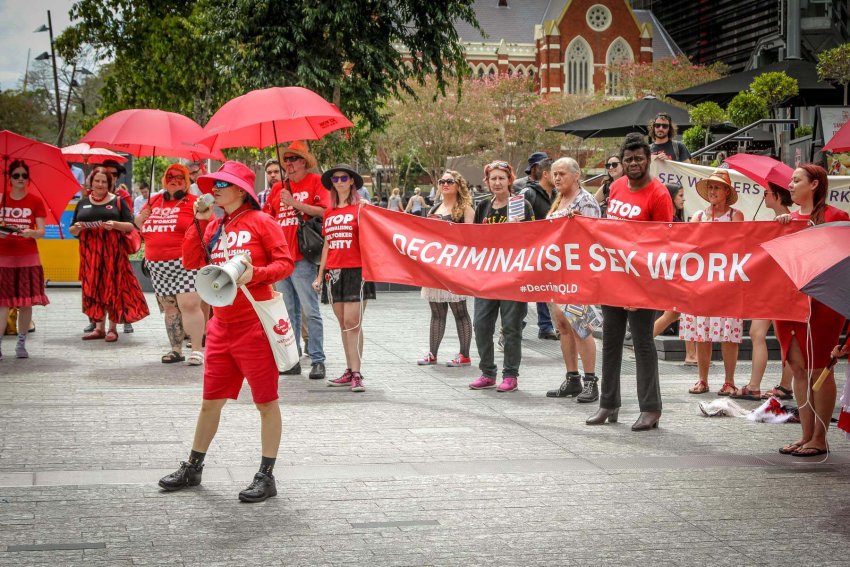
Sex workers in Queensland are campaigning to decriminalise sex work 30 years after this was recommended by the Fitzgerald Inquiry into state police corruption.
Janelle Fawkes from the #DecrimQLD campaign told Green Left Weekly that for the past two decades Queensland has effectively had a licensing model, whereby it is not illegal to set up a brothel but there are significant and costly hurdles. As a result, only 20 legal brothels exist in the state.
This legal framework disadvantages erotic massage parlours that do not want to operate illegally but are prevented from getting licences under current law. It is also particularly egregious for individual sex workers who want to work independently.
Internationally, sex workers have developed strategies to improve safety, such as calling or texting a fellow worker before and after a session, sharing information about abusive clients and taking calls for or driving a worker to a session. But many of these practices are deemed illegal by Queensland police.
“Sex work is work and we deserve the right to use workplace safety strategies like any other worker. Yet any kind of exchange or sharing of information is seen by police as part of an organised approach,” Fawkes said.
Police essentially regulate the sex industry, she said, meaning they have a lot of power — which is often abused.
While policing of the sex industry is inconsistent, there have been periods when police have taken a very targeted approach, with statistics showing a 450% rise in charges over 2016-17, Fawkes said.
“More recently, we've heard from media reports about a high spike in charges around Townsville.”
“Police are definitely targeting Asian and migrant sex workers,” she added.
According to Fawkes, this targeting is not focused on identifying victims of trafficking; rather, it has resulted in the deportation of migrant sex workers on visa issues.
Sex worker advocacy group Respect Inc, which is part of the #DecrimQLD campaign, has said it constantly receives calls from workers wanting assistance relating to police charges.
Often police scrutinise sex worker advertisements, looking for a word out of place to use as an excuse to set up a covert operation. Police then pose as clients to entrap the worker, leading to seizure of cash, phones and laptops.
“This has happened on many, many occasions,” Fawkes said. “If they can identify on our phones that we are texting with another sex worker about a booking or if we have a receptionist or if we're sharing a workspace, then they can up the charge to provision of prostitution and a tainted property charge.”
“We would like to see police removed from their regulatory role in the sex industry,” Fawkes said.
The 1987-89 Fitzgerald Inquiry into Possible Illegal Activities and Associated Police Misconduct uncovered extreme levels of police corruption relating to the sex industry.
“There were recommendations in that report that recognised police needed to be removed from the role of regulating the sex industry,” Fawkes said.
“But the way the current system is set up, about 80% of the industry is regulated by the police because we are operating outside of that licensing framework or using safety strategies.
“Right now, as a sex worker, if you experienced harassment, theft or crime, you wouldn't report it to the police because you'd be making yourself known to the police as a sex worker and would expect future surveillance, deportation or intervention into your life.
“It is important that sex workers are able to take crimes to police and that sex workers are able to work safely without fear of police harassment in our workplaces.
“Sex workers in Queensland are aiming for full decriminalisation to ensure no sex workers are left behind, including migrant sex workers, street-based sex workers and sex workers living with HIV,” Fawkes said.
[A symposium to mark 30 years since the Fitzgerald Inquiry will be held on July 3 at The Gibson Room, Gardens Point QUT campus. For more information on the campaign visit respectqld.org.au.]